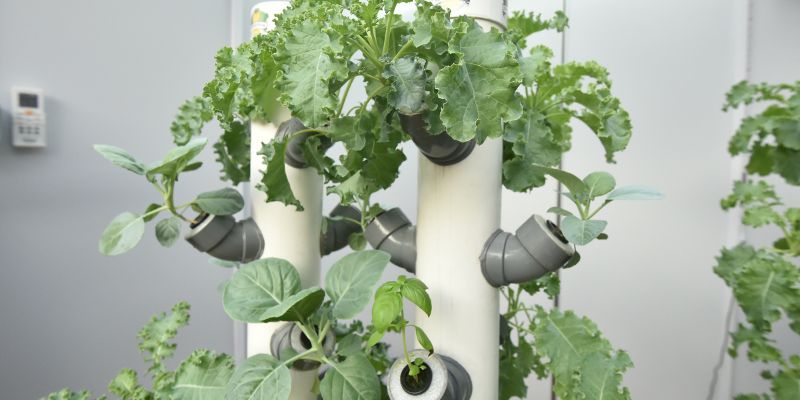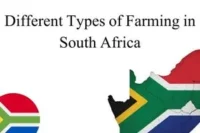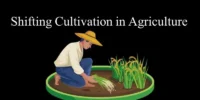Singapore’s Vertical Farming. A Sustainable Future
Published: 5 Apr 2025
Singapore, a small island nation with limited land, has long been dependent on importing food to meet the demands of its population. However, in recent years, the city-state has embarked on an ambitious journey to revolutionize its agricultural sector by embracing vertical farming technology. By using advanced technology to grow food in vertically stacked layers, often integrated into repurposed buildings and indoor environments, Singapore is not only improving food security but also paving the way for a more sustainable and technologically advanced future.

This case study focuses on how Singapore is leveraging agricultural technology—specifically vertical farming—to address challenges related to urbanization, limited land space, and food sustainability.
So, guys, without wasting time, let’s jump into the article to learn Singapore’s Vertical Farming. A Sustainable Future
The Challenges
Singapore is a densely populated country with limited arable land. More than 90% of its food is imported, which exposes the country to external shocks like trade disruptions, climate change, and global crises, such as pandemics.
The challenge for Singapore’s government and agricultural sector was clear: How could the country ensure food security and reduce dependence on imports while also embracing sustainability in a dense urban environment?
Emotional Reality:
For the people of Singapore, food security was more than a matter of convenience; it was about ensuring that every meal, from the simplest plate of rice to a family dinner, would remain available and affordable in the face of global uncertainty. The emotional weight of this issue was felt deeply, especially by those in the country’s leadership, who understood that relying on global supply chains was no longer a sustainable solution in the long term.
The Technological Solution:
Vertical farming is an agricultural method where crops are grown in vertically stacked layers, often integrated into building structures. This method is designed to maximize food production in urban areas with limited land. Singapore has embraced this technology through a variety of vertical farming initiatives that use high-tech tools like hydroponics, aeroponics, and LED grow lights to cultivate crops efficiently in urban spaces.
The key to vertical farming is using less land, fewer water resources, and less labor while producing more food. Singapore’s push to integrate this method has been spearheaded by companies like Sky Greens, Comcrop, and Vertical Farms, as well as support from the government’s Agri-Food and Veterinary Authority (AVA) and the Singapore Food Agency (SFA).
How Vertical Farming Works:
Hydroponics and Aeroponics: Vertical farms primarily use hydroponics and aeroponics systems, both of which allow crops to be grown without soil. Hydroponics involves growing plants in nutrient-rich water, while aeroponics suspends the plants in the air and delivers nutrients through a fine mist. Both methods conserve water and require less space compared to traditional farming techniques.
The Emotional Impact:
For many farmers, especially in urban environments, vertical farming offers a way to continue their livelihood while making a positive impact on the environment. This technology reduces the reliance on vast swathes of land and offers hope for more efficient food production in urban spaces.
LED Lighting: Vertical farms use LED grow lights to provide crops with the right amount of light, which is essential for photosynthesis. These energy-efficient lights can be adjusted in terms of intensity and color spectrum to suit the needs of different plants, enabling them to grow faster and in controlled environments.
The Emotional Impact:
The idea of growing food without the need for natural sunlight was revolutionary. For farmers and tech enthusiasts, it symbolized an entirely new approach to agriculture—one that allowed food to be produced anywhere, even in the most densely populated cities, providing a sense of empowerment and innovation.
Automated Systems and Data Monitoring: Advanced technology plays a central role in managing vertical farms. Automated systems monitor everything from temperature, humidity, and light levels to water and nutrient delivery. These systems use data analytics and artificial intelligence (AI) to optimize plant growth and ensure resource efficiency.
The Emotional Impact:
The use of data and automation allowed farmers to feel more in control of their operations. In a world where the unpredictability of weather and the unpredictability of supply chains can undermine traditional farming, vertical farming systems provided security and predictability, offering a sense of peace and stability.
Impact in Singapore:
Sky Greens: Sky Greens is one of Singapore’s pioneers in vertical farming. The company has created a vertical farm system that uses hydroponics to grow vegetables such as lettuce and spinach. Sky Greens uses aeroponic towers, which are powered by renewable energy and can grow up to 10 tons of vegetables per month on a small footprint.

Impact on Local Community:
Sky Greens has reduced the carbon footprint of vegetable farming by eliminating the need for long-distance transportation and importing produce. Their farm also uses 90% less water compared to traditional farming methods, which is crucial in a water-scarce region like Singapore. For the community, it means more locally grown produce and the reassurance that food security is becoming a reality.
Comcrop: Comcrop operates vertical farms on rooftops in Singapore, making use of unused space in the city. Comcrop uses hydroponics to grow a wide variety of vegetables, including herbs, spinach, and kale. They sell directly to restaurants and consumers, reducing the carbon footprint of transporting food.
Emotional Impact:
The community feels a deep sense of pride knowing that food can be grown just above their heads in a sustainable way. For urban residents who often feel disconnected from the land, vertical farms offer a tangible way to connect to the food they eat while also protecting the environment.
The Benefits of Vertical Farming in Singapore:
Sustainability: Vertical farming significantly reduces the environmental footprint of agriculture by using fewer resources—such as water, land, and fertilizers—compared to traditional farming. It also minimizes the need for pesticides and herbicides.
Emotional Impact:
For citizens and environmentalists alike, vertical farming offers a sustainable way forward. It represents a solution that balances human needs with the protection of nature, providing a sense of responsibility toward future generations.
Food Security: By producing food locally in urban spaces, Singapore can reduce its dependency on imports and enhance its food security. Vertical farming allows for the cultivation of a variety of crops in a controlled environment, reducing the risks posed by climate change or global trade disruptions.
Emotional Impact:
The peace of mind that comes from knowing that food can be grown within the country’s borders fosters a sense of security, especially in times of global uncertainty.
Economic Opportunities: Vertical farming creates new economic opportunities, from urban farming jobs to the growth of Agritech industries. It has also opened up avenues for local businesses to supply fresh, locally grown produce to consumers and restaurants.
Emotional Impact:
For individuals in urban areas, vertical farming represents a beacon of hope—an opportunity for job creation, entrepreneurship, and a way to contribute to the economy while preserving the planet.
Challenges and Considerations:
High Initial Costs: While vertical farming is an environmentally sustainable solution, the initial setup costs for infrastructure, technology, and automation can be high. For smaller-scale farms, this can be a barrier.
Energy Use: Though vertical farms use less water and land, they require energy, especially to power the LED lights and automated systems. Efforts to make vertical farming more energy-efficient and environmentally friendly are still ongoing.
References
“Singapore has embraced vertical farming to tackle food security challenges in a land-scarce environment, focusing on sustainability and innovation.”
Here is the list of all report regarding Singapore’s Vertical Farming. A Sustainable Future
Author Name. Kheir Al-Kodmany
The vertical farm. Sustainable urban Agriculture

- Be Respectful
- Stay Relevant
- Stay Positive
- True Feedback
- Encourage Discussion
- Avoid Spamming
- No Fake News
- Don't Copy-Paste
- No Personal Attacks

- Be Respectful
- Stay Relevant
- Stay Positive
- True Feedback
- Encourage Discussion
- Avoid Spamming
- No Fake News
- Don't Copy-Paste
- No Personal Attacks





